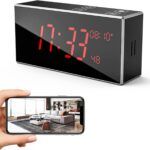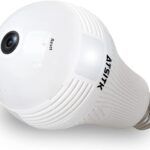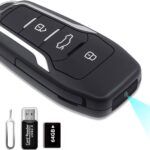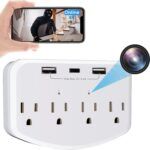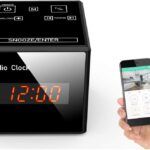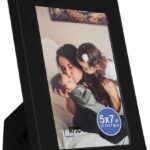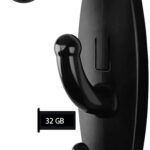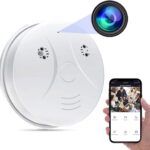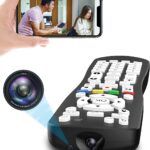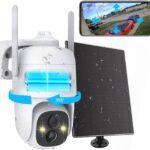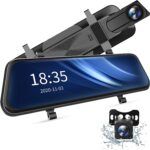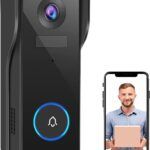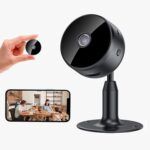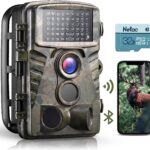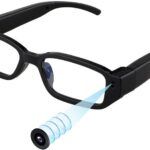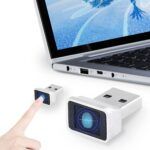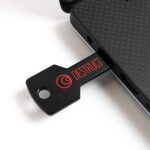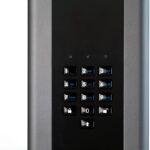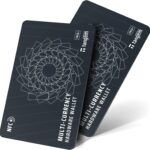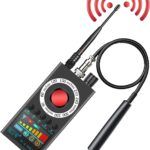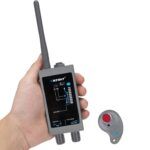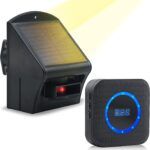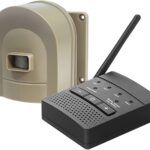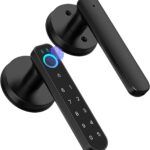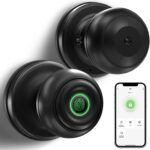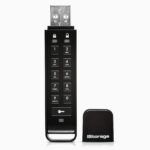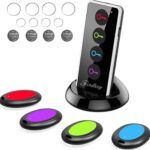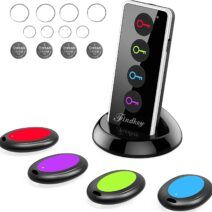Tracking devices available on the market today allow you to track vehicles, pets, kids, or personal belongings. These gadgets use a range of technologies such as GPS signals, radio frequencies, or Bluetooth connections and provide real-time information about the location of the device or the person/object it is attached to.
Take a look at our selection of quality tracking devices that cater to your unique needs, making it easier for you to keep track of your loved ones or valuable possessions.
Showing all 15 products:
-

Item Trackers (5)
-

Pet Trackers (4)
-

Vehicle Trackers (7)
-
Sale!

Atuvos Key Finder for Apple Find My
$19.99 
Cooau WiFi Mini Dash Cam Recorder
$89.99
Ldcx Wireless RF Item Finders
$18.98
LeonardCreek Pet GPS Tracker & Locator
$29.99-
Sale!

Onamicit Tiny Magnetic GPS Tracker (No Subscription)
$16.99 
Optimus Car GPS Tracker (OBD Plug-In)
$59.95
Optimus Vehicle GPS Tracker (Car Battery Installation)
$69.95
Optimus Vehicle GPS Tracker (Wireless)
$39.95
Pebblebee Card Wallet Tracker
$29.99
PebbleBee Clip Keychain Bluetooth Tracker
$29.99
TabCat Cat Collar Tracker
$119.99
Tracki Tiny GPS Tracker (Worldwide Track)
$15.69
Tractive GPS Cat Tracker
$49.99
Tractive GPS Dog Tracker
$49.99
Zeerkeer Mini GPS Tracker
$66.98
Tracking devices have become increasingly popular in recent years, with GPS trackers, Bluetooth trackers, and radio frequency trackers leading the way.
These devices are widely used to track various items, including pets, family members, vehicles, and personal belongings, such as purses, wallets, and laptops.
The main reason people use tracking devices is for peace of mind and security, as they allow you to locate and recover lost or stolen items, or to keep an eye on your loved ones.
GPS trackers
GPS trackers are the most common type of tracking device and work by using a network of satellites to determine the location of the device. They provide real-time location updates and can pinpoint the device’s location within a few meters. GPS trackers are used to track vehicles, as well as to keep tabs on pets and family members. Many GPS trackers also come with additional features, such as geofencing, which sends an alert when the device enters or exits a predefined area, and real-time tracking, which allows you to see the device’s location in real-time on a map.
Bluetooth trackers
Bluetooth trackers, on the other hand, work by using Bluetooth technology to connect the tracker to a smartphone or tablet. They have a limited range of up to 200 feet and are primarily used to track personal belongings, such as purses or laptops. Bluetooth trackers are small and discreet, and they can be attached to items using keyrings or adhesive pads. When the tracker is out of range, you will receive a notification on your phone or tablet, which can help you locate your lost item.
RF trackers
Radio frequency trackers, also known as RFID trackers, work by using radio waves to locate the tracker. They have a limited range of up to 100 feet and are often used in commercial applications, such as inventory tracking. RFID trackers are not commonly used for personal tracking, as they are expensive and require special equipment to read the signals.
Filter trackers with:
Common uses for tracking gadgets
There are many reasons to use GPS or Bluetooth trackers. For pet owners, GPS trackers can be a lifesaver. If your pet wanders off or gets lost, a pet tracker can help you quickly and easily locate them. This is especially important if your pet is prone to wandering or if you live in an area with a lot of traffic. Additionally, if you are traveling with your pet, a GPS tracker can give you peace of mind knowing that you can locate them if they get away from you.
Bluetooth item trackers, on the other hand, are useful for tracking items that are often misplaced or forgotten, such as keys, wallets, or laptops. These devices use Bluetooth technology to communicate with your phone, so you can easily find your misplaced item by using an app on your phone. This can save you time and stress, especially if you’re in a rush or have an important appointment.
Another reason to use GPS or Bluetooth trackers is for tracking vehicles. GPS trackers can help you keep tabs on your vehicle’s location at all times, which can be useful for parents of teenage drivers, business owners who need to keep track of their fleet, or anyone who wants to keep their vehicle safe from theft. Some GPS trackers can even send you notifications if your vehicle is being driven outside of a designated area, which can give you added peace of mind. Bluetooth trackers can also be useful for tracking your vehicle’s keys, which can help you quickly locate them if they are misplaced.
How to choose an ideal tracking device
GPS trackers are the most popular and versatile type of tracking device, providing real-time location updates and additional features such as geofencing. Bluetooth trackers are ideal for tracking personal belongings, while radio frequency trackers are mainly used in commercial applications.
When choosing a tracking device, it is essential to consider your specific needs and the features that are most important to you, such as real-time tracking, battery life, and range.
Is using tracking devices even legal?
It is important to note that using tracking devices for spying or tracking someone without their knowledge or consent is certainly unethical, and potentially illegal. It is a violation of their privacy and could lead to legal consequences.
There are laws in many countries that regulate the use of tracking devices, and in most cases, consent is required from the individual being tracked. Some countries also have strict laws regarding the use of tracking devices for surveillance purposes, and violators may face fines or imprisonment.
However, there are countless situations where tracking devices can be used for legitimate purposes, such as monitoring the location of family members, vehicles, or personal belongings. In these cases, it is important to use the devices in accordance with local laws and regulations and with the consent of the individuals being tracked.
It is essential to consider the ethical implications of using tracking devices, even when they are used for legitimate purposes. It is important to respect the privacy and autonomy of others, and to use these devices only when it is necessary and appropriate. You should always be transparent about the use of these devices and have open and honest conversations with the people who are being tracked. This will help avoid misunderstandings and ensure everyone involved is comfortable with the arrangement.
Many families are using tracking gadgets with full transparency:
- Spouses use it to keep track of their counterparts without having to worry if anything happened to them if they’re late from work.
- Parents use GPS trackers to know their kids are safe during vacations.
- Pet owners can rest safely knowing their best friends are never too far away from home.
- Children with parents suffering from Alzheimer’s can have the peace of mind they desperately need.
There is never any need for secrecy or hidden tracking devices placed in vehicles or clothing. When you have a legitimate concern for tracking people, your loved ones will often happily oblige.
Never lose your keys or pets again
Tracking devices have become an essential tool for many people, providing peace of mind and security. If you frequently misplace your keys or if your loved ones suffer from conditions affecting their memory, tracking gadgets can be an invaluable tool to help in everyday life.

